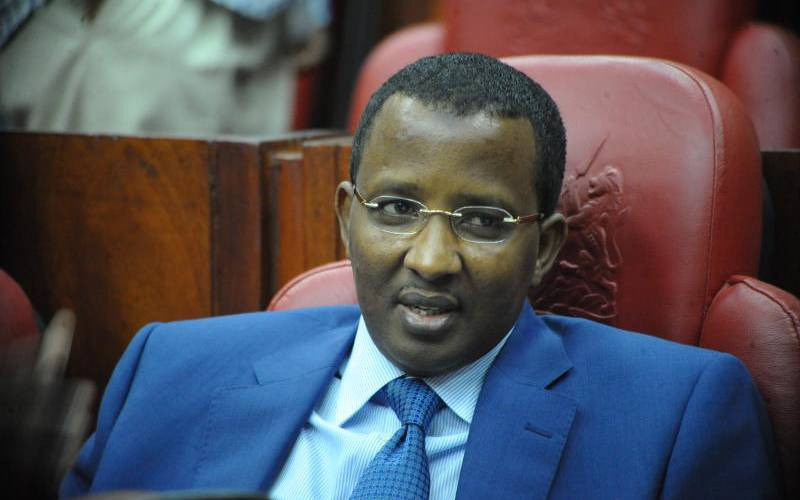NAIROBI: Farming communities in arid and semi-arid (ASAL) counties are expected to soon see a boost in their incomes if an ambitious project being funded by the Government and donors meets its objectives.
The African Development Bank (AfDB) and the Government have provided Sh5.5 billion to finance the Multinational Drought Resilience and Sustainable Livelihoods Programme (DRSLP), aimed at boosting food and livestock production in the ASALs.
The project is expected to improve the living standards of communities in six counties — Turkana, Isiolo, Samburu, Marsabit, Baringo and West Pokot. AfDB is providing Sh4.9 billion in financing for the project, with the Government contributing Sh575.5 million.
The project, whose implementation has now begun in earnest, seeks to enhance drought resilience and improve the livelihoods of the communities in these counties.
AfDB Director-in-Charge of the East African Regional Resource Centre Gabriel Negatu said the funds would enable investment in infrastructure and capacity building.
“As a bank, our focus is on ensuring the communities living in the ASAL regions benefit from their endowed but untapped resources,” he said.
“The project is at different stages of implementation, but will be completed by June 2018.”
BUILDING RESILIENCE
Agriculture Principal Secretary Sicily Kariuki added that the project would focus on the development of livestock markets, irrigation schemes and water structures for humans and livestock.
“We are fast tracking an all-inclusive approach geared towards improving the lives of residents in the ASALs. Largely, the idea is to make the identified regions more hospitable and encourage high production out of the endowed resources,” she said.
“Building resilience requires building the capacity of these communities to oversee the infrastructure development process, as well as manage pastoral livelihoods in the context of a changing climate.”
Ms Kariuki added that to ensure the project delivered, the Government early this year signed MoUs with the six county governments.
The identified counties have formed County Project Implementation Teams (CPITs) to review the project’s progress and ensure the targeted activities are carried out as per an approved work plan and budget.
Kariuki confirmed that the procurement process for the required infrastructure development is underway, with some tenders already awarded to contractors.
“It is worthwhile to note that local entrepreneurs within the counties have secured contracts for the works, resulting in increased economic activities in the counties,” she said.
Stay informed. Subscribe to our newsletter
“So far hydro-geophysical surveys have been done for 17 out of 18 water structures.”
COMMERCIAL PASTURE
Contractors have also begun work on eight commercial pasture plots, totaling 380 hectares. The Kenya Agricultural and Livestock Research Organisation (Kalro) will undertake pasture re-seeding.
Under the project, 16 livestock markets will also be established in the counties — four each in West Pokot and Turkana, with the rest in Samburu and Baringo. The tender process for their construction is ongoing.
Kariuki added that the communities in the six counties have been prepared to take ownership of the project, which is essential to its success and continuity.
[email protected]
 The Standard Group Plc is a
multi-media organization with investments in media platforms spanning newspaper
print operations, television, radio broadcasting, digital and online services. The
Standard Group is recognized as a leading multi-media house in Kenya with a key
influence in matters of national and international interest.
The Standard Group Plc is a
multi-media organization with investments in media platforms spanning newspaper
print operations, television, radio broadcasting, digital and online services. The
Standard Group is recognized as a leading multi-media house in Kenya with a key
influence in matters of national and international interest.
 The Standard Group Plc is a
multi-media organization with investments in media platforms spanning newspaper
print operations, television, radio broadcasting, digital and online services. The
Standard Group is recognized as a leading multi-media house in Kenya with a key
influence in matters of national and international interest.
The Standard Group Plc is a
multi-media organization with investments in media platforms spanning newspaper
print operations, television, radio broadcasting, digital and online services. The
Standard Group is recognized as a leading multi-media house in Kenya with a key
influence in matters of national and international interest.







